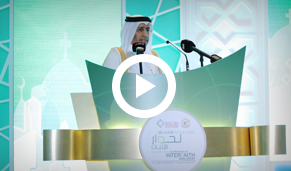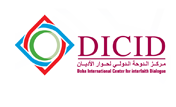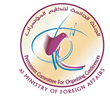Steps Towards Religious Tolerance: 11th Doha Interfaith Conference
March 31, 2014
http://www.expatguide.me/steps-towards-religious-tolerance-11th-doha-interfaith-conference/

Each year, the Doha Interfaith Conference seeks to spread the message of religious cooperation and opens a dialogue between leaders of different faiths, in hopes of ending hate speech and encouraging religious freedom. Religion is always a hot topic for discussion, no matter the type of religion or the country it’s being discussed in. Though many like to blame religion for conflict between countries, there are usually deeper seated problems with power, nationalism, or land, and religion is a convenient scapegoat. Though it can easily become a volatile subject, religion is often accepted as a means of resolution and integration.
As a pre-cursor to the annual meeting, religious leaders from over 50 countries gathered in Qatar on March 24 and 25 for the "Doha Meeting for Advancing Religious Freedom Through Interfaith Collaboration". This meeting is held as a way to incorporate the Istanbul Process, a platform implemented to discuss regional cooperation between Afghanistan and its neighboring countries. The Organisation of Islamic Cooperation (OIC) uses the Istanbul Process to help facilitate UN Resolution 16/18, a proposition for the right to freedom of religion, belief, and expression.
There is no hard line between what’s considered free speech and what’s considered hate speech, a problem that isn’t exclusive to the Middle East. Hate-inciting speech fuels intolerance and violence against religions. The OIC hopes for a clear distinction between the two, so laws can be drawn up to prevent religious intolerance that causes harassment and violence.
Tolerance is one of the biggest tenants in most major types of religion, yet religious intolerance and discrimination are global problems. During the meeting, the participants discussed everything from the rights of minorities to the promotion of religious tolerance, even setting up an action plan that would ensure any acts of intolerance or persecution are reported to the UN Human Rights Council.
Secretary General of the International Union of Muslim Scholars, Ali Mohiuddin Qara Daghi, wants to implement efforts for eliminating fanaticism. Religious fanatics and extremists often target the youth to spread their message and try to instill their ideas in young minds. Because of this, the 11th annual Conference, which concluded on March 27, focused on the "Role of Youth in Enhancing the Value of Dialogue".
The youth hold the future in their hands, so it’s important to include them in religious conversations. The leaders hope to involve youth in the Interfaith dialogue and to promote their message of religion helping foster global co-existence. They even hope to cut back on the influence of extremists being transmitted via social media. Efforts to involve youth in religious dialogue are seeing success in other organizations, such as the
The Interfaith Conference seeks to break down misconceptions about religions, especially ones common in the Middle East, such as Islam, Judaism, Christianity, Buddhism, and Hinduism. They promote members of different religions working together to eliminate hate crimes stemming from religious intolerance and the stigma that religion is the main cause of war. In reaching out to the youth for help, they hope to promote a peaceful future.


